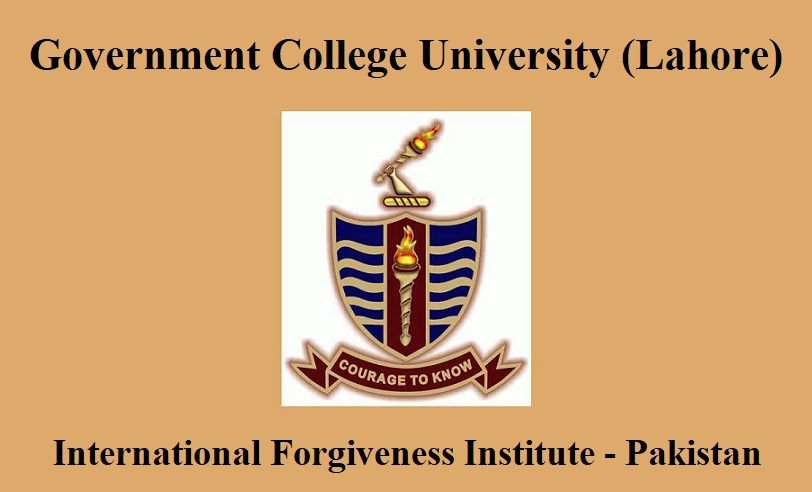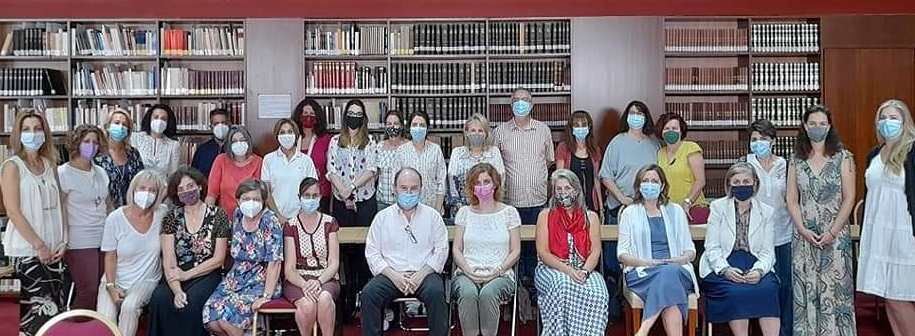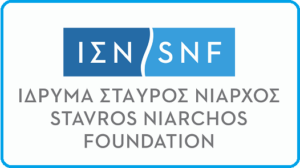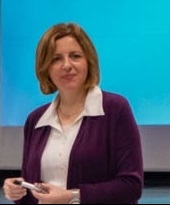News
The Missing Piece to the Peace Puzzle – FORGIVENESS
While Russia’s invasion of Ukraine is invoking unwelcome recollections of previous territorial wars, an international multidisciplinary team of researchers that has been meeting since 2014 is discovering what makes some societies more peaceful than others. One of the crucial elements for promoting peace and nonviolence, they say, is an individual’s capacity for forgiveness—a concept International Forgiveness Institute co-founder Dr. Robert Enright has been espousing for decades.
“We launched our first peace initiative in 2002 when we began teaching forgiveness education in Belfast, Northern Ireland,” Dr. Enright recalls. “I was convinced back then, and I believe even more so now, that forgiveness is the missing piece to the peace puzzle. These study results are nothing new.”
During his 35+ years of studying the virtue of forgiveness, Dr. Enright has repeatedly demonstrated that as people forgive, they become less angry, less depressed, less anxious, and more hopeful of their future. In other words, people become more peaceful within themselves, making the possibility of peace with others more likely. He outlined his grass-roots approach in this 2010 article: Forgiveness Education as a Path to Peace. Read Dr. Enright’s latest blog for Psychology Today, Forgiveness as a Missing Piece to Peace Between Ukraine and Russia.
The study results about crucial elements for peace come from a team of experts that is part of the Advanced Consortium on Cooperation, Conflict, and Complexity (AC4), a multidisciplinary research institute based at Columbia University in New York City. AC4 is a unit of the university’s Earth Institute which is made up of scholars spread across 35 research centers and programs encompassing more than 850 scientists, students, postdoctoral fellows and staff.
The group’s mission is to employ models and methods from complexity science (a branch of applied mathematics) to study the dynamics of peaceful societies with the goal of “revolutionizing peace and conflict resolution.” AC4 research has identified and studied more than 80 internally peaceful societies around the globe and identified their common characteristics including:
- abundant forgiveness reservoirs that help mitigate anger, fear, and negativity; and,
- higher levels of capacity for forgiveness that can lead to the endorsement of peace beliefs.
Working together with organizations like the United Nations (UN), the International Peace Institute, and The World Bank, AC4 is exploring various models (i.e., the role of forgiveness, victim memory, and reconciliation) in the actual peace process in countries like Colombia, Israel-Palestine, and Afghanistan. In the process, they are generating and promoting new practical, transdisciplinary, evidence-based approaches to peace.
Like AC4, the International Forgiveness Institute (IFI) has also collaborated with peace-seeking organizations going as far back as 1999 when Roy Lloyd, IFI Board President, was part of a delegation led by the Rev. Jesse Jackson that traveled to Belgrade, Yugoslavia (now Serbia). That delegation not only gained the release of three American soldiers captured during the Kosovo Conflict but also urged Yugoslavian President Slobodan Milosevic to accept a UN offer to establish a foreign peacekeeping force in Kosovo.
In 2014, Dr. Enright laid the foundation for “Forgiveness as a Peace Tool” at a 2-day work session hosted by the United Nations Population Fund (UNFPA) in New York City. Dr. Enright, a University of Wisconsin educational psychology professor, was named to serve on a UN international “Expert Group” that was established to begin developing intervention models aimed at ending gender-based violence around the world. Three weeks later, delegates at the United Nations Peace Conference in Geneva, Switzerland, resolved that “justice and forgiveness” are essential tools in peacebuilding.
“Peace is not a goal to be reached but a way of life to be lived.”
Archbishop Desmond Tutu
Nobel Peace Prize-winning South African Anglican cleric;
25+ years Honorary Board Member – IFI
More recently, Dr. Enright last fall negotiated the establishment of the International Forgiveness Institute’s newest partner, IFI-Pakistan. That Branch Office is housed at the Government College University Lahore (GCU-Lahore, Pakistan) and is the first of its kind in Pakistan and in Southern Asia. The unit will function in collaboration with the IFI with the mission of developing and disseminating forgiveness interventions and methodologies throughout the country.
“Because only a few psychologists have expertise in this field in Pakistan, we can now offer an accredited course teaching forgiveness psychology,” said GCU Vice Chancellor Dr. Asghar Zaidi, in announcing the partnership. “Forgiveness liberates us from anger, resentment, bitterness, and destructive behavioral patterns that are prevalent in our society.”
partnership. “Forgiveness liberates us from anger, resentment, bitterness, and destructive behavioral patterns that are prevalent in our society.”
Dr. Enright has been working since 2016 with Dr. Iffat Batool, a GCU psychology professor, who has tirelessly pursued creation of the unit. Pakistan was one of the seven countries that conducted research and validation on Dr. Enright’s new research tool, the Enright Forgiveness Inventory-30 and several of Dr. Enright’s research tools have already been translated into Urdu, one of the two official languages of Pakistan (along with English). A request is also pending to get the publisher’s approval to translate Dr. Enright’s book 8 Keys to Forgiveness into Urdu for use with GCU’s “Forgiveness Psychology and Practice” course.
Dr. Enright is also working closely with the National Director of the Liberia Forgiveness Education Program (that the IFI established 10 years ago after the country’s civil war finally concluded) to implement forgiveness interventions that could help with reconciliation efforts between the various factions: Can Group Forgiveness in Liberia Lead to Peace? His peace efforts in other parts of the world are outlined on the IFI website at Peace Education Goals.
Learn More:
- Interactive Sustainable Peace Casual Loop Diagram (AC4 Sustainable Peace Project)
- How to Live in Peace? Mapping the Science of Sustaining Peace (American Psychologist)
- The Sustainable Peace Mapping Initiative (Columbia University)
- Contribute to the realization of sustainable peace. Support the IFI with a charitable gift.
Correcting Forgiveness Misconceptions and Distortions
Misconceptions and distortions are nothing new to most professionals—particularly to the professionals who employ forgiveness interventions and forgiveness therapy. Since the first empirically based study on person-to-person forgiveness was published in the social sciences (Enright et al., 1989), there has been vigorous debate on exactly what forgiveness is and is not.
That debate has generally been positive and helpful in the overall evolution of forgiveness from a simple concept (and primarily a religious credo) to a vitally important mental health approach for many people who have been victimized. At the same time, there still are a few in the mental health professions who are criticizing forgiveness with some good points but also with some errors.
Those who dispense misinformation about forgiveness prevent many individuals from
choosing forgiveness when they could truly benefit from deep emotional recovery.
Dr. Robert Enright
Dr. Enright, co-founder of the International Forgiveness Institute (IFI) and the man labeled “the forgiveness trailblazer” by Time magazine, has been using scientific research methods to study forgiveness for more than 35 years. Whenever he learns about an inaccurate or erroneous premise that is being circulated, he tries to address it head-on. That’s exactly what he did just this week by factually countering an essay published on Feb. 20 in Psychology Today.
The essay, “Why Forgiveness Isn’t Required in Trauma Recovery,” was written by a Chicago psychotherapist who is also a speaker and author. While acknowledging that “I’ve witnessed the benefits of forgiveness for many of my clients,” the author’s main contention is that “forgiveness is potentially problematic when incorporated into trauma treatment.”
While Dr. Enright says he has heard all those erroneous assertions before, he quickly drafted his own essay providing fact-based and true-to-life counter arguments for each of the claims. His goal in doing so, he says, was not to heavily criticize, but instead “to protect the integrity of a genuine process of forgiveness, free of confusions of what forgiveness is and is not.”
Dr. Enright’s critique of the original essay was published on Feb. 26 by Psychology Today. While the publication gave his clarifying discourse the same title as the original Feb. 20 article, it added a significant subtitle, “Why Forgiveness Isn’t Required in Trauma Recovery: Published misconceptions of forgiveness may discourage people from trying it.”
The blog essay by “the father of forgiveness research” (the title bestowed on Dr. Enright by The Christian Science Monitor) provides 5 succinct and factual responses to the original article’s 5 contentions. It also clarifies two points on which he agrees with the article: 1) “forgiveness after unjust behaviors is not necessarily for everyone;” and, 2) “as a moral virtue, forgiveness never ever should be forced onto anyone.”
Dr. Enright is no stranger to Psychology Today. In fact, in the past 5 years he has penned nearly 100 blog essays as part of his own dedicated column for the publication’s website called “The Forgiving Life.” Those blog posts have been accessed online more than a million times–an average of 548 times per day since he began writing them.
According to Dr. Enright, he will continue his efforts to provide information to Psychology Today readers and he will continue to clarify points when there appear to be misunderstandings about forgiveness and forgiveness therapy so that both therapists and clients can make informed decisions.
LEARN MORE:
- Read the original article: “Why Forgiveness Isn’t Required in Trauma Recovery”
- Read Dr. Enright’s critique of that article: “Published Misconceptions of Forgiveness May Discourage People from Trying It”
- View Dr. Enright’s “Top Ten Psychology Today Blogs”
- Access all of Dr. Enright’s “Psychology Today Blogs“
How to Help People in Ukraine Right Now
When Russian President Vladimir Putin met with French President Emmanuel Macron at the Kremlin earlier this month, Mr. Putin recited a crude Russian joke about Sleeping Beauty. Comparing the fairy tale princess to Ukraine, he said, “Whether you like it or not my beauty, you will need to put up with all I do to you.”
When he later was told about the malicious remark, Ukrainian President Volodymyr Zelensky responded to Mr. Putin by saying, “Ukraine is indeed a beauty but she’s not yours.” (Source: Time Magazine)
As the Russian invasion of Ukraine continues, people around the world are seeking ways to help those in Ukraine being impacted by the destruction and those fleeing the country to try to stay alive. An article in yesterday’s online Time Magazine provides some real possibilities.
The article is titled “Here’s What You Can Do to Help People in Ukraine Right Now.” It outlines simple steps anyone can take to help, provides links to several international aid organizations, and lists half a dozen Ukrainian and US nonprofits that are providing humanitarian aid to Ukraine.
Read more:
Forgiveness as a Missing Piece to Peace Between Ukraine and Russia, (Dr. Enright’s latest blog in Psychology Today)
Another list of Ukraine aid organizations (PBS radio station KQED, California)
Photographs of Ukraine Under Attack (Time Magazine)
The Ukraine Invasion – Explained (NPR)
Mapping and Tracking Russia’s Invasion of Ukraine (USA Today)
Forgiveness Education for Students in Nursing Program Helps Reduce Anxiety and Depression
A research study published last month, utilizing Dr. Robert Enright’s forgiveness intervention model, showed that students in college nursing programs would benefit from a forgiveness intervention in the areas of self-care and forgiveness facilitation.
The nursing students, randomly assigned to either an experimental group or a no-contact control group, used Dr. Enright’s book 8 Keys to Forgiveness as the project’s treatment manual. After studying one chapter a week for 8 weeks, the students in the experimental group showed greater improvement in forgiveness compared to those in the control group from the pretest to the posttest which was maintained at the four-week follow-up. In addition, those in the experimental group showed statistically significant decreases in anxiety, depression, and fatigue from pre-testing to both post-testing and follow-up testing periods.
The study was conducted by a team of 8 researchers from the Liberty University School of Nursing (Lynchburg, VA) under the direction of Jichan J. Kim, Associate Professor of Psychology at Liberty. Dr. Kim has been the lead investigator on more than a dozen forgiveness-related studies over the past several years.
This latest study, The Efficacy of a Forgiveness Bibliotherapy: A Randomized Controlled Trial with Nursing Students, was published in the Journal of Holistic Nursing (JHN) on Jan. 10, 2022. JHN is a peer-reviewed quarterly journal with a focus on advancing the science and practice of holistic nursing and healthcare.
“The need for forgiveness education for nursing students has risen dramatically as responsibilities have broadened for nursing professionals,” according to Dr. Kim. “Our study positively demonstrated that the use of bibliotherapy can be a cost-effective way to promote the virtue of forgiveness for nursing students who are likely to be in need of exercising self-care and would have opportunities to facilitate forgiveness for their patients.”
Bibliotherapy, Dr. Kim explained, is a therapeutic approach that uses literature (in this case Dr. Enright’s 8 Keys to Forgiveness) to support good mental health. This study, he added, demonstrated not only the effects of forgiveness, as numerous studies have done in the past, but also the feasibility of using a forgiveness bibliotherapy that can be easily adopted into the existing nursing curriculum.
That same approach has been used by Dr. Enright, co-founder of the International Forgiveness Institute (IFI) and the man Time magazine calls “the forgiveness trailblazer,” in a slightly different format over the past two years. Dr. Enright has worked with Dr. Chontay Taylor Glenn, PhD, RN, PMHNP-BC, to enroll a total of eight University of Michigan-Flint nursing students in the IFI’s Forgiveness Therapy training course.
Dr. Glenn is Assistant Professor & Project Director of the Psychiatric Mental Health Nurse Practitioner Residency Program at UM-Flint. In addition to incorporating the IFI’s forgiveness training into the curricula for her nursing students, she also developed a program through which nine Flint-area community counselors completed the Forgiveness Therapy online continuing education course. Dr. Kim provided three hour-long training sessions by Zoom as part of that collaborative effort between Dr. Glenn, Dr. Enright, and himself.
The newly trained counselors in Flint are also undertaking an expanded role in their community, according to Dr. Glenn–providing forgiveness education classes and case coordination to Flint-area adolescents who have experienced adverse childhood experiences. The project is funded by a grant from the W.K. Kellogg Foundation in Battle Creek, MI.
About Dr. Kim
Jichan J. Kim is an Associate Professor of Psychology and the Director of the M.A. in Applied Psychology program at Liberty University, Lynchburg, VA. His research interests include the effects of interpersonal and intrapersonal forgiveness as well as the integration of psychology and Christianity.
Dr. Kim has degrees from the University of Wisconsin-Madison (M.S. & Ph.D.), Harvard University (Ed.M.), Gordon-Conwell Theological Seminary (M.Div. & M.A.), and City College of New York (B.A.). He also has extensive ministry experience in New York City, Boston, and Madison (WI), serving various age groups in Korean immigrant congregations.
Learn More:
- Nursing Students Research Report Abstract
- Bibliotherapy Defined
- Overview of the IFI’s Forgiveness Therapy Course
Forgiveness Education in Greek Schools Expands with IFI – University Collaboration
More than 3,000 grade school students in Greece are learning how to reduce their anger, increase cooperation, gain resilience, and transform their traumas into personal character strengths through Forgiveness Education classes during this 2021-2022 school year.
“Trauma Transformation Through Forgiveness Education” is a social-emotional learning (SEL) program developed by Dr. Peli Galiti, Ph.D., M.Ed., research scholar at the University of Wisconsin – Madison. Dr. Galiti, a native of Athens, is also Director of the Greek Forgiveness Education Program (GFEP) started in 2014 by the Madison-based International Forgiveness Institute (IFI).
“This one-of-a-kind program is based on the educational research studies conducted by Dr. Robert Enright who pioneered the field of Forgiveness Education,” says Dr. Galiti. “His studies have demonstrated that Forgiveness Education classes help students reduce in anger and hostile attribution, increase in empathy, and actually result in improved grades.”
Dr. Enright is a UW-Madison educational psychology professor who co-founded the International Forgiveness Institute in 1994. He has developed comprehensive Forgiveness Education curricula for students in grades K-4 through 12th that are now being used in more than 30 countries around the world.
According to Dr. Galiti, the new program is actually a collaboration between the IFI, UW-Madison, and two Greek universities—the Aristotle University of Thessaloniki and the National and Kapodistrian University of Athens (where Dr. Galiti previously lectured). Funding is provided by the Athens-based Stavros Niarchos Foundation, one of the world’s leading private, international philanthropic organizations. The program also has the endorsement of the Greek Ministry of Education.
Dr. Galiti began implementation of the Trauma Transformation program last September by leading a series of Forgiveness Education workshops for 110 Greek teachers. Those teachers are delivering the forgiveness classes this semester at schools in four Greek cities–Athens, Larisa, Patra, and Thessaloniki.
That training focused on techniques and methods the teachers could use to help their students manage traumatic experiences and any personal or relational difficulties that might cause harm and pain. Thematic instructional units included:
- Forgiveness Education theory and principles.
- Why forgiveness is necessary and how it is applied in the school environment.
- Theories about trauma and its treatment.
- Transformation and wound healing through Forgiveness Education.
- Collaboration in the classroom and conflict resolution.
- The experience of Forgiveness Education in Greek schools: Best Practices and Case Studies.

These grade school teachers in Athens were among the 110 teachers who received Forgiveness Education training conducted by Dr. Peli Galiti as part of the collaborative effort between the University of Wisconsin-Madison and the University of Thessaloniki.
The collaborative training efforts for this Forgiveness Education program have received support and major funding through the Greek Diaspora Fellowship Program that is designed to help avert Greece’s brain drain and develop long-term, mutually beneficial collaborations between universities in Greece, the United States, Canada, South Africa and Australia. The Fellowship Program is managed by the Institute of International Education in collaboration with the Fulbright Foundation in Greece, and funded by the Stavros Niarchos Foundation.
In 2017, Dr. Galiti was one of 30 Greek- and Cypriot-born scholars representing 28 prominent United States and Canadian universities who traveled to Greece to conduct academic projects with their peers at Greek universities as part of the Greek Diaspora Fellowship Program. As part of her fellowship, Dr. Galiti hosted workshops about Restorative Justice and Forgiveness Education, along with conducting research about bullying prevention and class collaboration.
- Visit the Greek Forgiveness Education Program website.
- Watch a 4 min. 12 sec. video about the Greek program: Learning to Forgive.
- Read more about Dr. Galiti’s eductional work in Greece.
- Watch a video webinar on Greek Forgiveness Education featuring presentations by Dr. Galiti and Dr. Enright.
About the Stavros Niarchos Foundation:
The Stavros Niarchos Foundation (SNF) (www.SNF.org), is one of the world’s leading private, international philanthropic organizations, making grants in the areas of arts and culture, education, health and sports, and social welfare. Since 1996, SNF has committed more than $3.3 billion through 5,100 grants to nonprofit organizations in 135 countries around the world.
The Foundation funds organizations and projects that are expected to achieve a broad, lasting and positive impact for society at large, and exhibit  strong leadership and sound management. The Foundation also supports projects that facilitate the formation of public-private partnerships as an effective means for serving public welfare. In addition to its standard grants, the SNF has continued to respond to the urgent needs of Greek society, by providing relief against the severe effects of the socioeconomic crisis through three major grant initiatives of $378 million.
strong leadership and sound management. The Foundation also supports projects that facilitate the formation of public-private partnerships as an effective means for serving public welfare. In addition to its standard grants, the SNF has continued to respond to the urgent needs of Greek society, by providing relief against the severe effects of the socioeconomic crisis through three major grant initiatives of $378 million.





